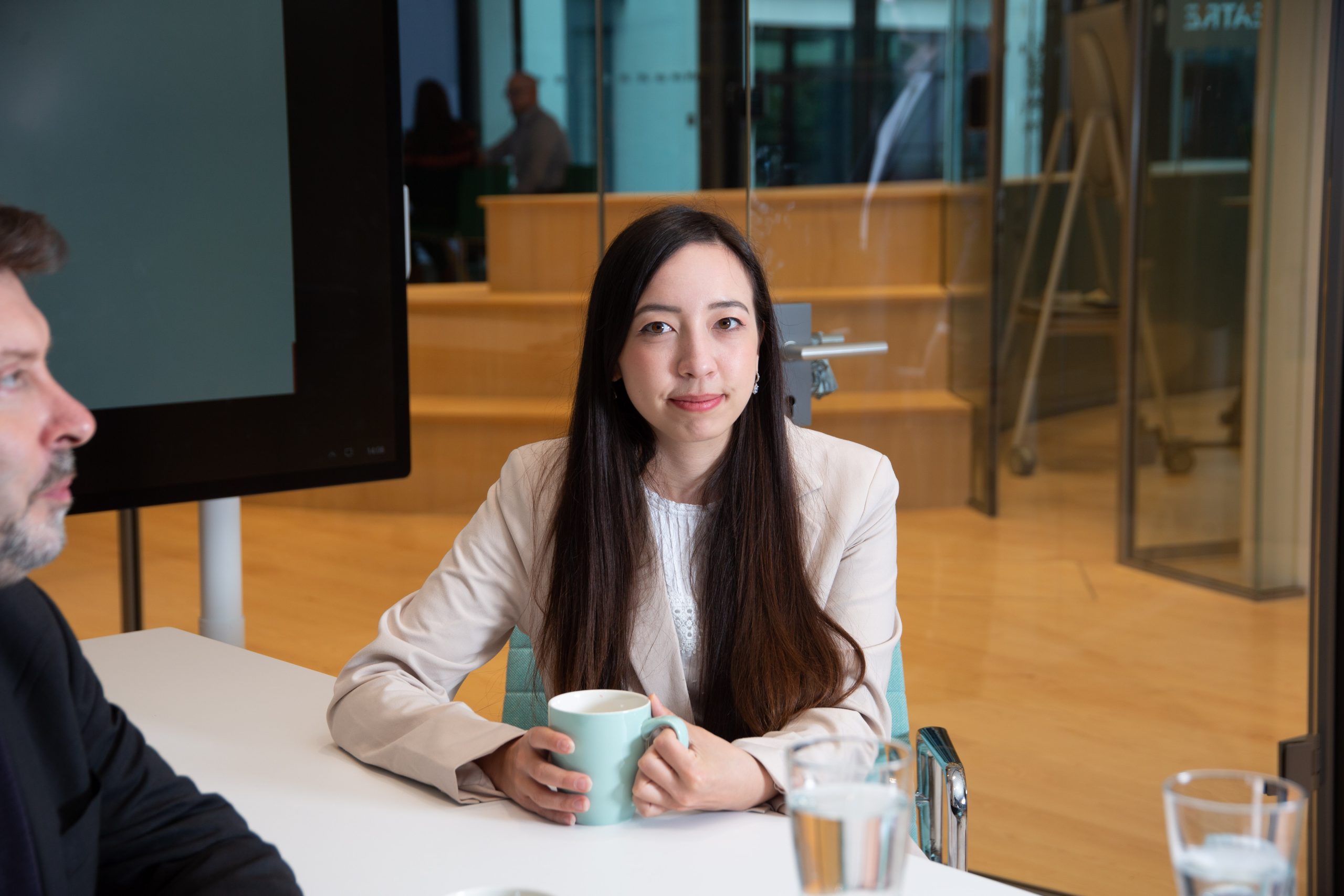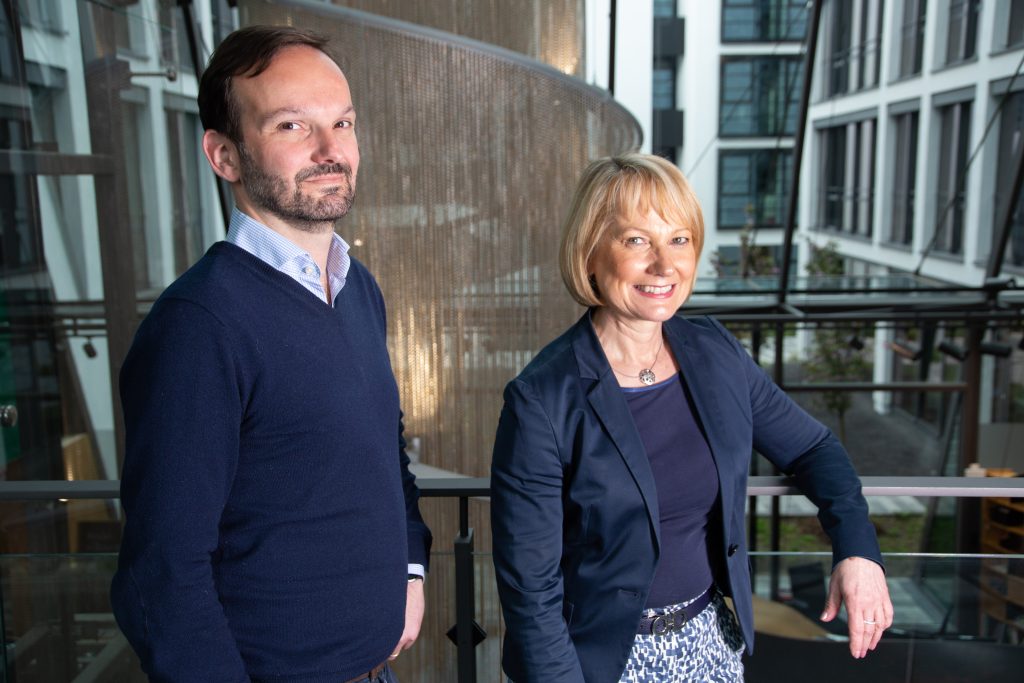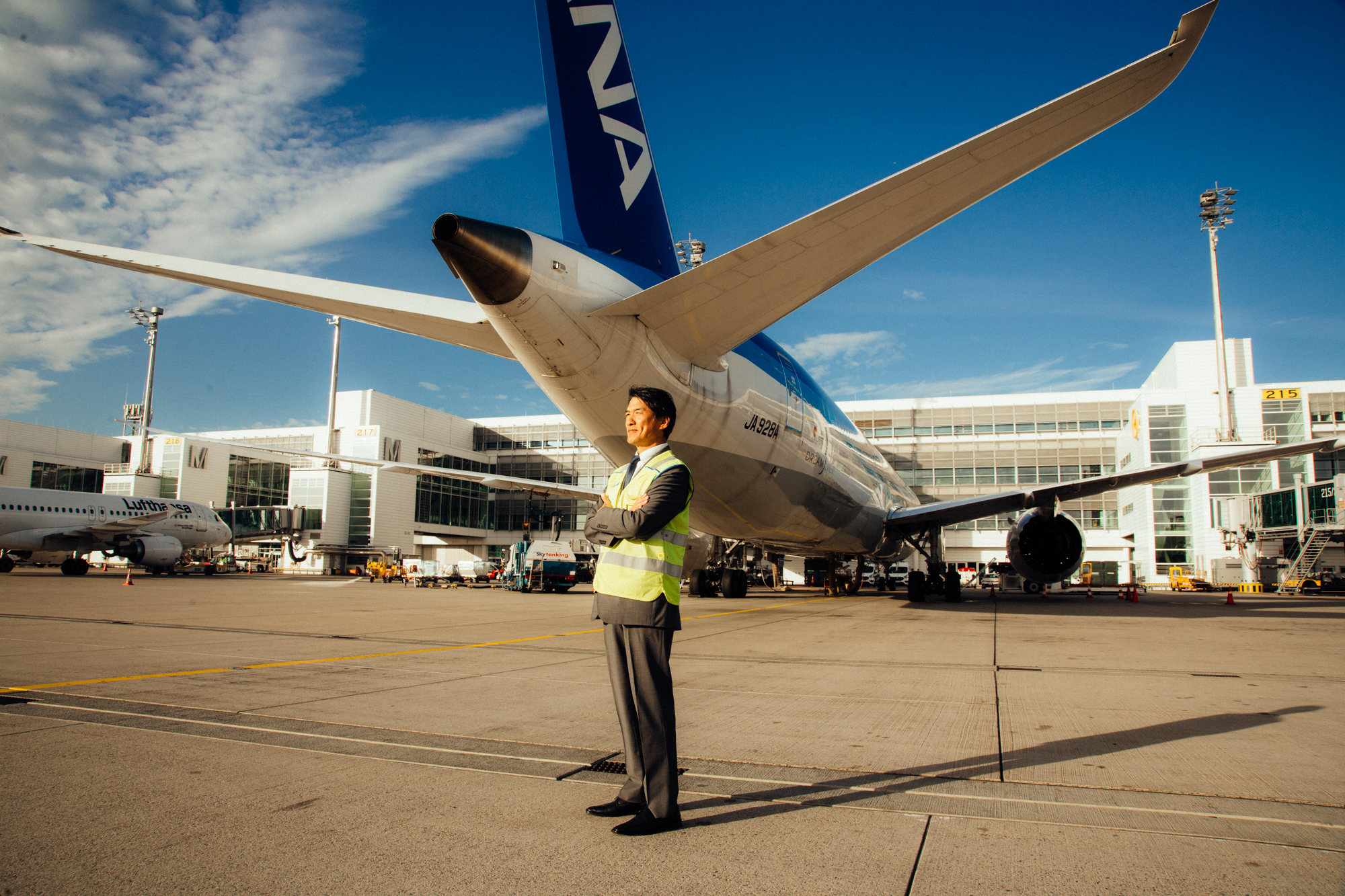As an expert in oncology and cardiology, Daiichi Sankyo is tackling the most common causes of death in Germany and Europe: strokes, heart attacks and cancer. Formed by a merger, the Japanese pharmaceutical company develops innovative drugs and therapeutic approaches. J-BIG spoke to Dr Martina Witzel, Head of Oncology Germany, and Benoit Creveau, General Manager for Daiichi Sankyo Germany, about the challenges of a global Japanese pharmaceutical company, visions for the future – and the company’s German roots.
J-BIG: What is both your histories with Daiichi Sankyo?
Dr Martina Witzel: I have been with Daiichi Sankyo since September 2020 – in Munich, where our German branch and the European headquarters are located. I started in the European organization, where I was responsible for the areas of lung and gastric cancer for our oncology division. As “Executive Director Lung/GI Cancer”, I had the privilege of leading a small team that handled market research, brand planning and market launches. After the division was established last year, I had the opportunity to move to the German organisation as “Head of Oncology Germany”, meaning that I took on responsibility for the overall oncology business in Germany.
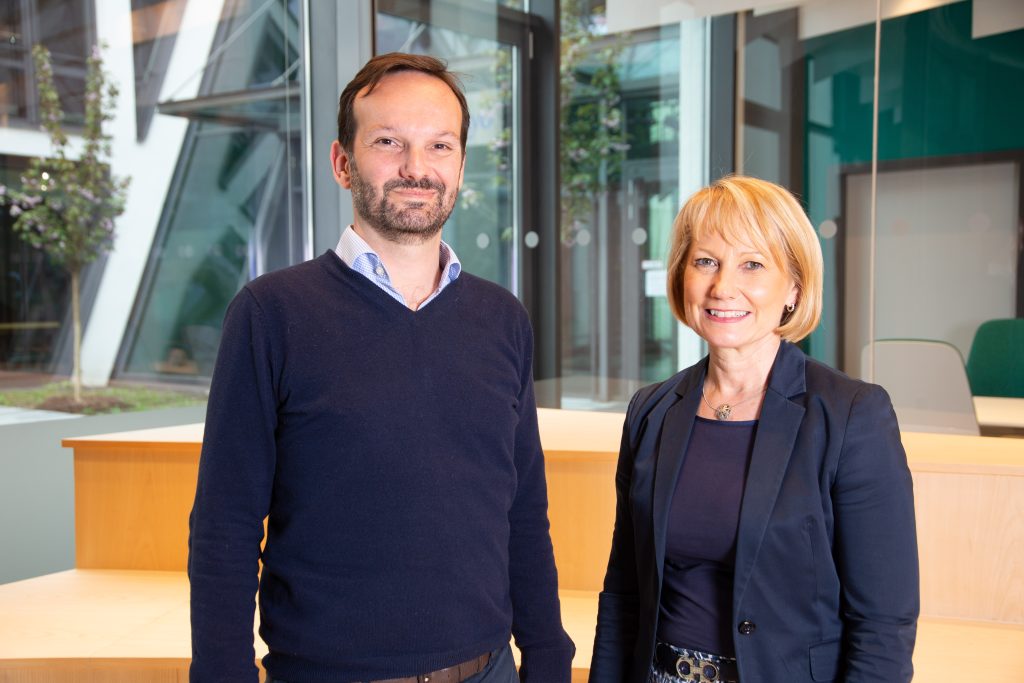
Benoit Creveau: My history with the company is different. I started at the European headquarters of Daiichi Sankyo fifteen years ago, two years after the merger of Daiichi and Sankyo. I initially worked in various marketing roles and I didn’t anticipate to grow with the same company for so long. But I found something special at Daiichi Sankyo: the opportunity to build something new and continue to grow. We are a learning organisation, and that gives people the opportunity to develop. If I had to describe my time here, I would say it feels like the Japanese cherry blossom season – except it never ends, it just keeps on blooming!
After some time in the organisation, I took over a special business unit in Germany focusing on cardiology. I am also the General Manager for Daiichi Sankyo Germany. This is a first in two ways: for me personally, it is the first time working in a German organisation, and I am also the first non-native General Manager here.
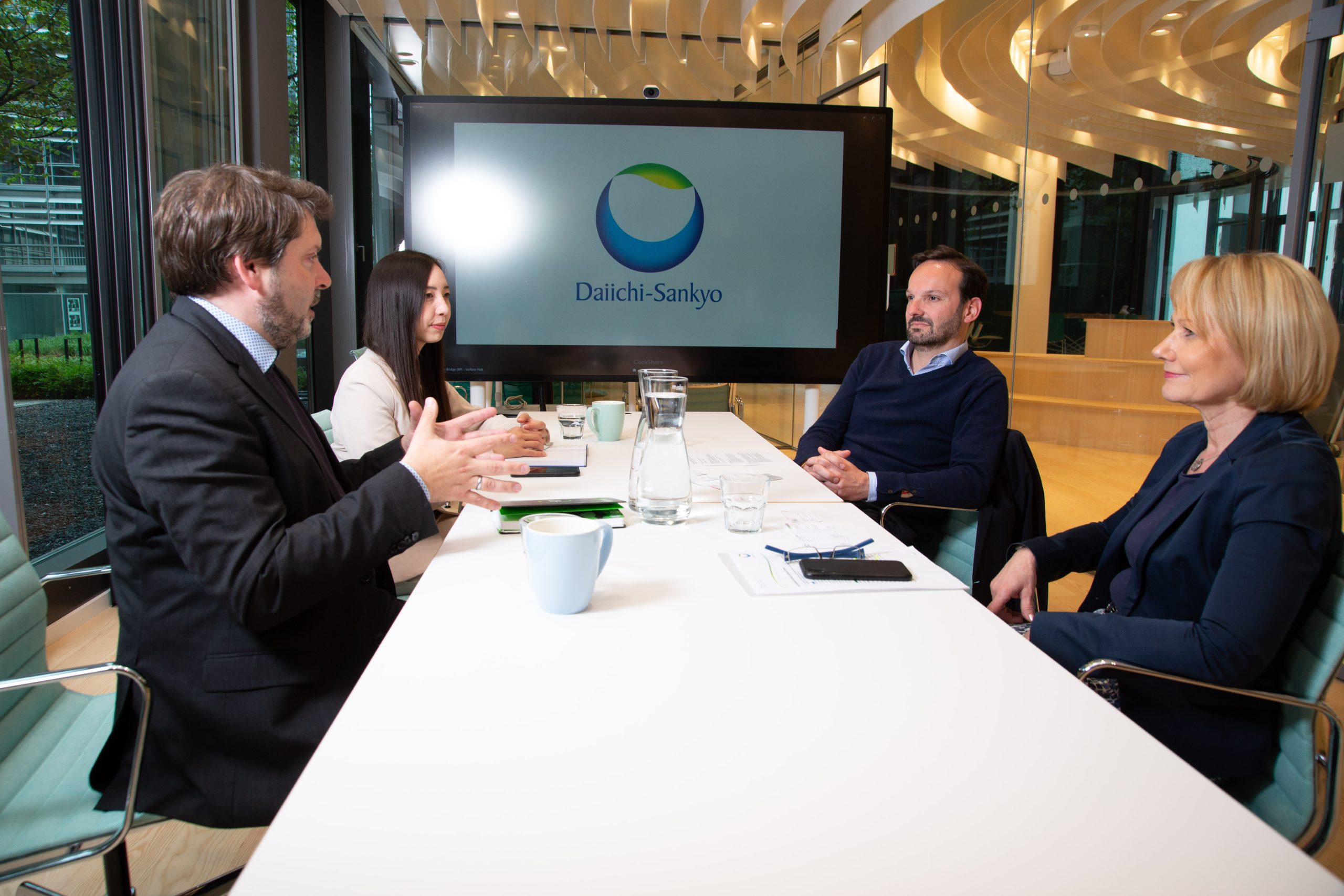
J-BIG: You already mentioned the merger that created Daiichi Sankyo. Could you talk a little more about the origins of the company – and explain what role a German company played in it?
Benoit Creveau: Essentially the company is a merger of two companies, Sankyo and Daiichi. Sankyo was founded in 1899 and initially produced enzymes, adrenaline and vitamins. For example, they were the first to discover vitamin B1 in rice bran. In 1990, Sankyo took over a family-owned business in Munich called Luitpold-Werk. Founded in 1910, the company specialised in over-the-counter medicines and was best known for its pain ointment. The Luitpold-Werk itself was very close to our current site, just down the road, but it also had its own production facilities in Pfaffenhofen. For Sankyo, the acquisition was primarily about getting a foot in the door in Germany at the time.
Daiichi was founded in 1915 and produced drugs for syphilis, asthma, tuberculosis and haemostatic agents. Interestingly, Daiichi and Sankyo both took their first steps in Europe and Germany in the same year: Daiichi launched an antibiotic in West Germany in 1985 and Sankyo set up offices in Duesseldorf and the US that same year. Both companies chose Germany as their gateway to Europe – independently, but probably for the same reasons. There is definitely a connection between Japan and Germany when it comes to innovation and striving for perfection, especially when it comes to research and development.
J-BIG: So both companies came to Germany. What happened after that?
Benoit Creveau: In 2002, Sankyo launched a drug to treat high blood pressure. The product was marketed in Germany and the US and was instrumental in establishing the company in the German market. At the time, Daiichi did not have much of a commercial presence in Europe, at least not in cardiology. Then, in 2005, Sankyo and Daiichi merged. This merger was very advantageous for both companies: Many synergies were created in terms of products as well as research and development. Together they were able to build a stronger commercial presence with greater international potential. The cardiology portfolio has grown accordingly since the merger – and keeps on growing.
We have now about 17,000 employees worldwide; in Europe we employ almost 2,000 people in fourteen countries. Of these, nearly 400 are focused on the German market, although many more work here at the European headquarters in Munich. Including our production facility in Pfaffenhofen, nearly 1,800 people work for us in Germany. In the German market we have a turnover of about 650 million Euros in market sales – when I started 15 years ago it was 100 million. So we have seen rapid growth here, driven mainly by the expansion of our portfolio. We started with a core product, then we expanded into cardiology and eventually invested in oncology. Today we are a franchise company with these two mainstays.
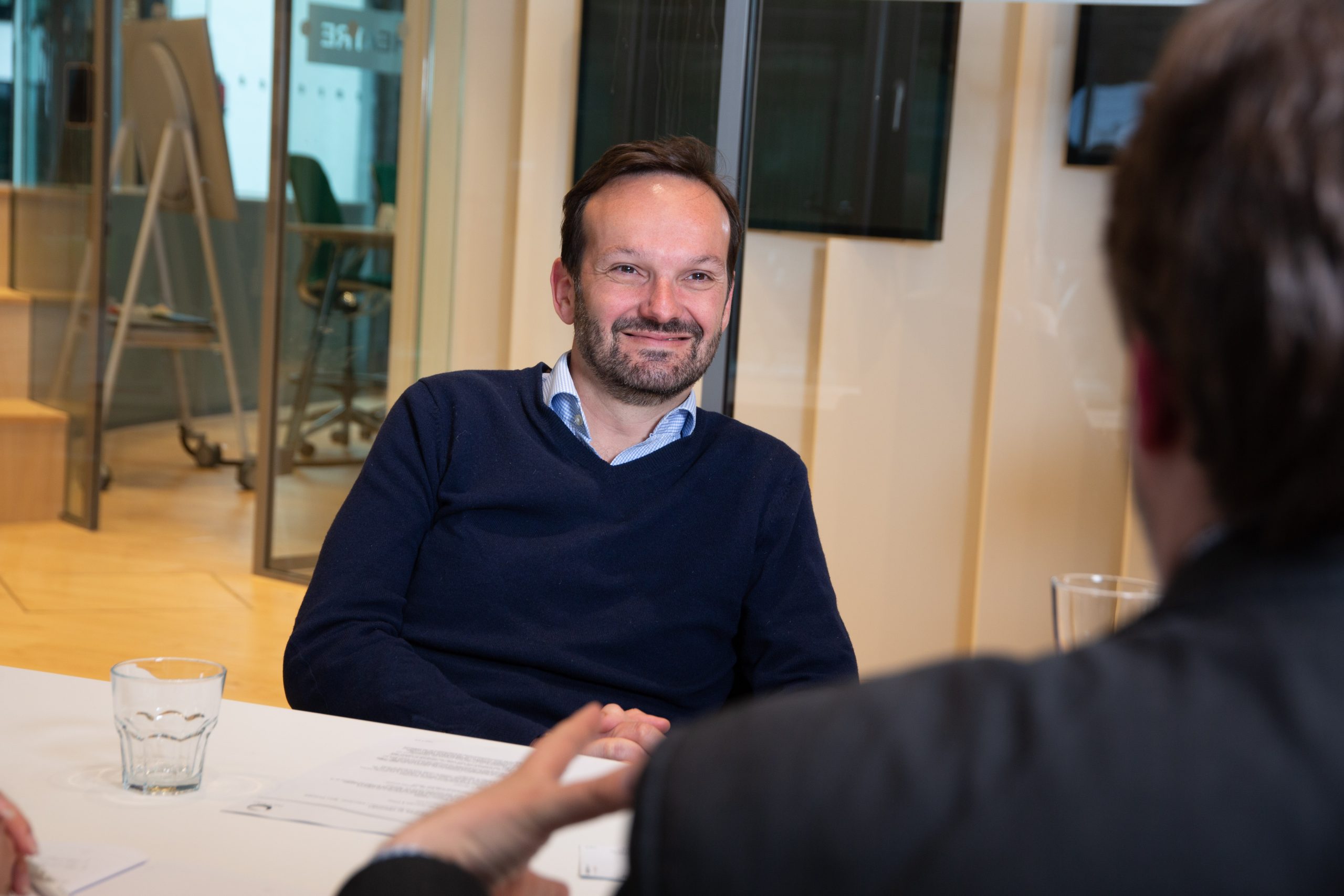
J-BIG: Are cardiology and oncology the main focus in the German and European environment or is this also the global focus?
Benoit Creveau: There is no general answer. In cardiology we are present in Asia and Central America, Japan and Europe, but not in the US.
Dr Martina Witzel: Oncology is more global. For example, a breast cancer drug was launched in 45 countries – so it really is a global product. This is also our goal for the future: to become a global organisation and a global player in oncology with growing influence. So far, we are active in 14 countries in Europe, in Brazil and in the largest Asian markets, such as Singapore and China. In Japan itself, the situation is quite different because Daiichi Sankyo is a very well-known and well-established company. We actually have a very different product portfolio there than in Europe or the US.
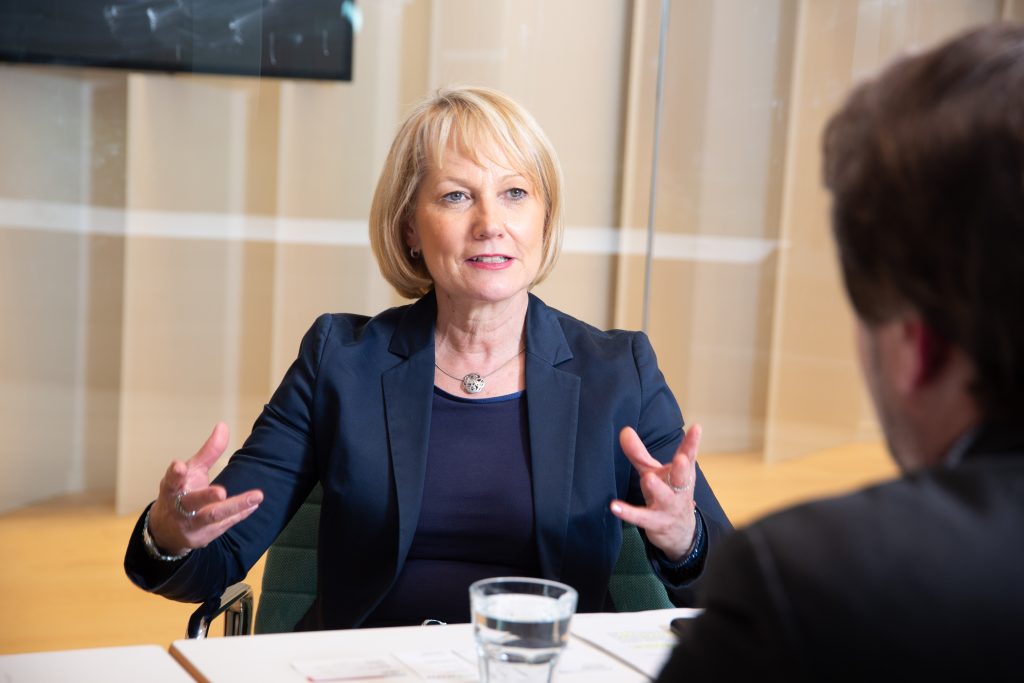
J-BIG: What are some of those products that are not available in Europe but play an important role in Japan?
Benoit Creveau: The Japanese portfolio is much more diverse overall, also because many companies like to work with Daiichi Sankyo to gain access to the Japanese market. We have many small products as well as larger flagship products where we work to make them global products. This is not always possible, but the trend is clearly towards global launches.
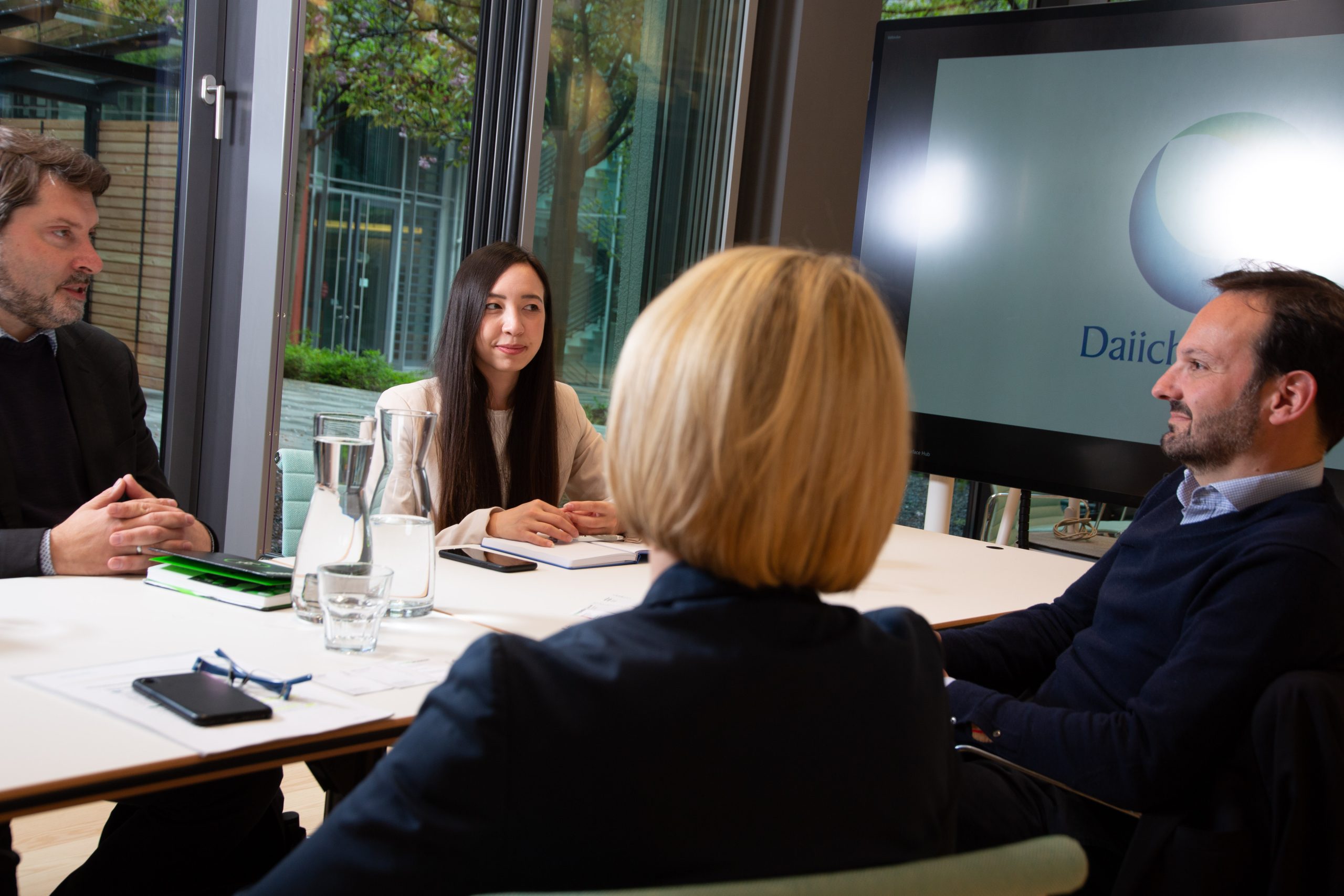
J-BIG: Could you explain the two fields of oncology and cardiology from the patient’s point of view?
Dr Martina Witzel: Oncology is a broad field. We are currently focusing on breast, gastric and lung cancer. In Germany, around 70,000 women are diagnosed with breast cancer every year, many of them in the early stages, which are also curable. But some of them later develop metastases, so the disease spreads to other parts of the body. In this situation, the disease is no longer considered curable, but it is possible to prolong life, sometimes for many years, with the help of drugs. We want to make this extra time of life as comfortable as possible so that patients can share many more moments with their families and friends.
J-BIG: Let’s now turn our attention to cardiology. What diseases are your patients struggling with in this area?
Benoit Creveau: In cardiology we come from a different direction and work more on prevention. We want to prevent the lives of our patients and those around them from being endangered in the first place. This applies to the two main risk factors that kill people: strokes and heart attacks. The difficulty with our work is that these drugs have to be taken 10 to 15 years before such an event might occur. So prevention is really the key, and we need to convince patients to take our drugs so that these incidents do not happen in the first place.
More than 2.5 million people in Europe are currently taking our medicines. 65 percent of all causes of death in Europe and Germany are currently related to cardiology or oncology. But few people are aware that heart disease is the leading cause of death in Europe. That is why prevention is so important, but also so difficult.
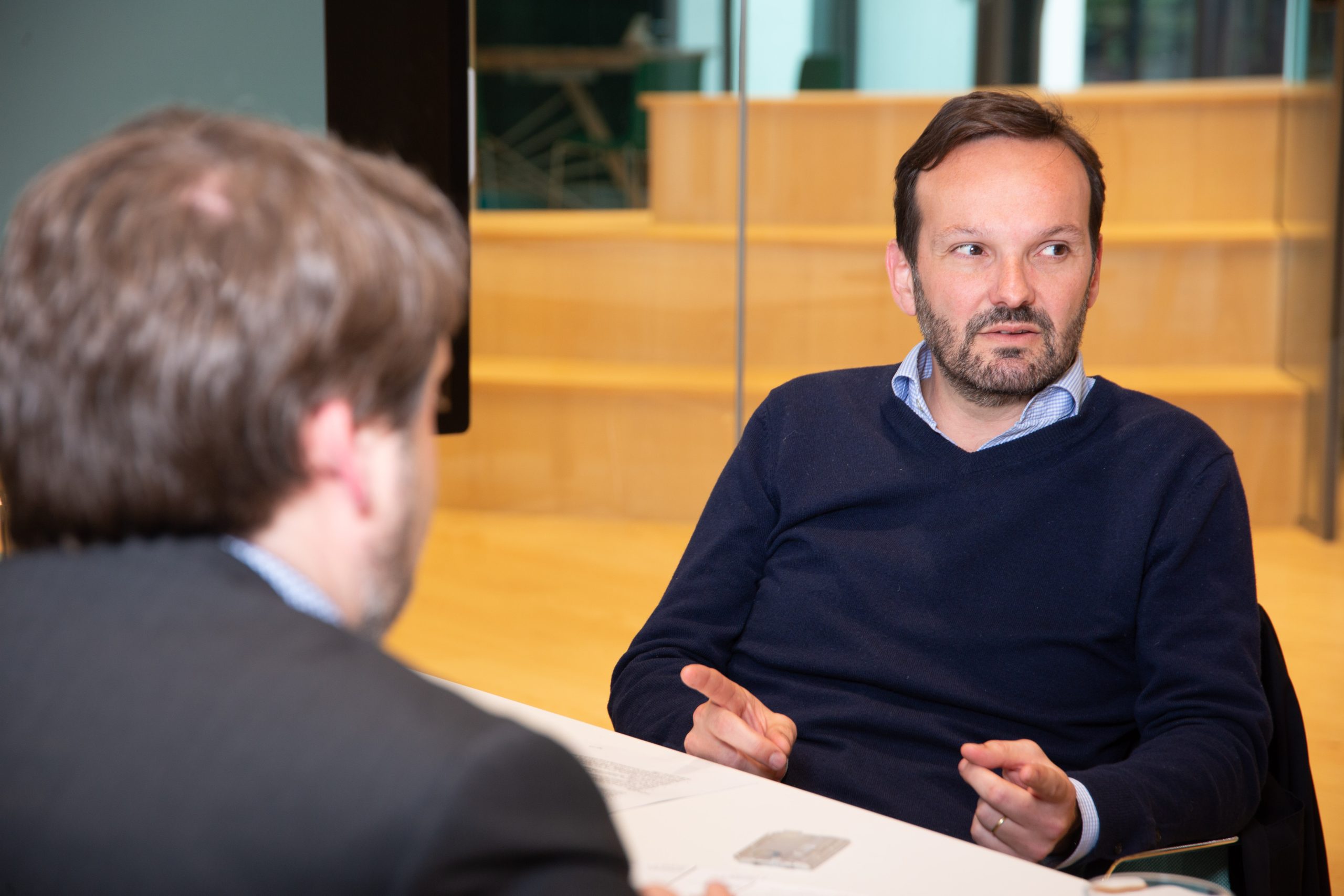
J-BIG: Let’s talk about product development: Does all the research take place in Japan?
Dr Martina Witzel: Most of the pre-clinical research is done in Japan. In Germany we do some research on the tolerability of new medicines locally in our Tissue and Cell Research Center in Martinsried close to Munich. As soon as we start conducting studies with patients, we do it locally in the clinics, including in Germany. In hospital trial centres, our drug is then tested against the standard drug by randomly assigning patients to one of the two treatment groups. These are usually trials involving several hundred patients.
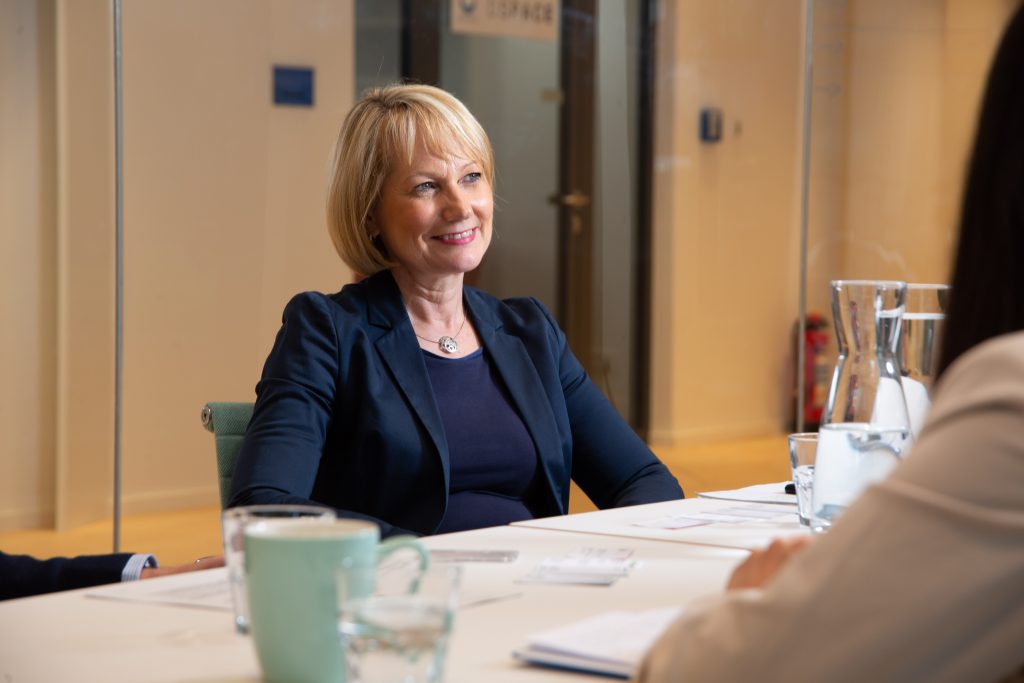
These clinical studies take place all over the world, which is very important. Geographical and ethnic factors play a significant role in the development and mode of action of medicines. For example, the development of cardiovascular drugs is not the same in Japan as it is in Europe. This is due to differences in metabolism between people in Asia, Africa, Europe, the Caucasus and the Americas. For example, Japanese people often need lower doses of drugs, so we can rarely use and register the same dose for Europe and Japan in clinical trials. Also, the incidence and expression of certain cancers is not the same everywhere – stomach cancer is one example. This can vary from disease to disease and from drug to drug, and it is absolutely essential to take this into account in clinical trials.
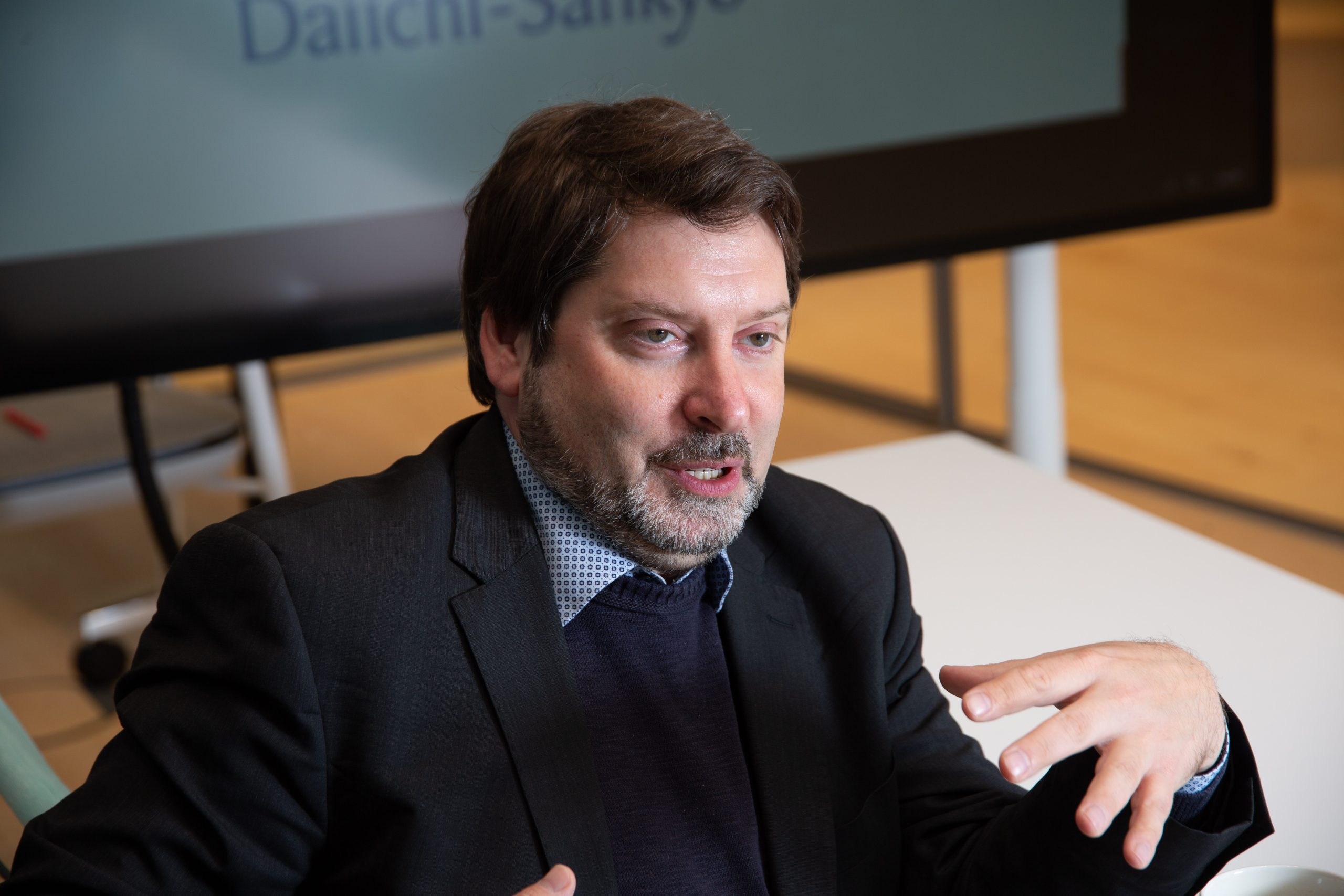
J-BIG: How do you experience the links and cultural integration between the European and German subsidiaries and Japan?
Dr Martina Witzel: This year marked my first visit to the Japanese headquarters, and it was a very rewarding experience. We received a very warm welcome, although Japan is often known for its formality. There was a global oncology meeting and we had the opportunity to speak directly to the CEO and the Board of Directors, who made time for everyone. Daiichi Sankyo is becoming more and more a global company and has also launched a global culture initiative. You could feel how serious they are about this and how much has already happened here. Behind all these efforts is a promise to bring new medicines to patients whose needs cannot yet be met. This responsibility is what drives us, in Japan as well as in Europe.
Benoit Creveau: I’m in Japan about every year, and every time I go, I notice small changes and more and more interest in globalization. A lot has happened in the last 15 years! I see Japan opening up more and more and adapting to cultural aspects and customs that are important in Europe and the US. The role of Japanese expats has also changed: In the past, it was mainly older and more senior employees who came to Germany to learn more about the European business. But they tended to stay in the role of observers. Now I have a lot of people in my teams who are under 30 and are very hands-on. For example, two of my best salespeople are from Japan! I think the way we work together and the integration of expats has changed a lot. I have the impression that the younger generations in particular are much more open and globally minded.
Dr Martina Witzel: We currently have around 40 expats from Japan in Germany. One of them is a member of my team. A lot of effort is being put into international exchange and into integrating him and providing him with experience of the European market.
J-BIG: How do you work with Japan on a daily basis?
Benoit Creveau: On the management level, there is a lot of exchange with Japan, especially when it comes to special projects. In general, however, the regions outside Japan have a lot of autonomy. When Daiichi Sankyo decided to grow, this was a conscious decision. So compared to traditional Japanese companies, we have very few reporting requirements and very little day-to-day pressure from Japan, as long as we meet our targets. We are now transitioning to be a global player.
Dr Martina Witzel: A good example of this regional strength is our facility in Pfaffenhofen. You may have seen in the news that supply issues with pharmaceutical suppliers are a recurring problem. Our plant in Pfaffenhofen and its expansion is also a commitment to Europe and Germany. We want to build an antibody-drug conjugate (ADC) site here so that we don’t risk any more shortages in the future and can fulfil our mission to supply Europe with medicines.
J-BIG: What are your plans for the future?
Dr Martina Witzel: I see a bright future for us in oncology. We will launch many more products in the coming years and hopefully change the treatment paradigm for cancer patients. Our research centre in Martinsried, where we study tumour cells, will help us in this. In Germany, we have big ambitions to become one of the three fastest-growing oncology companies.
At the same time, we hope that our Japanese-German background can build bridges and help us become a major player. We would like to emphasise our Japanese heritage even more in the future.
Benoit Creveau: Even though my heart bleeds a little as a Frenchman, I have to say: Germany is now the most attractive European market for the pharmaceutical industry. This has not always been the case. We have several medium-term plans, the latest of which is our vision for 2030. I don’t want to go into too much detail here, but one statement by our CEO Manabe-san stands out for me: “A company that is only interested in profit will not be successful”. Following this thought, we also focus on sustainability and contributing to the well-being of society. I think this is something that sets us apart from other pharmaceutical companies. Perhaps it also goes back to our Japanese roots. Our employees appreciate this philosophy, and it is one of the reasons why they stay with Daiichi Sankyo for so long.
